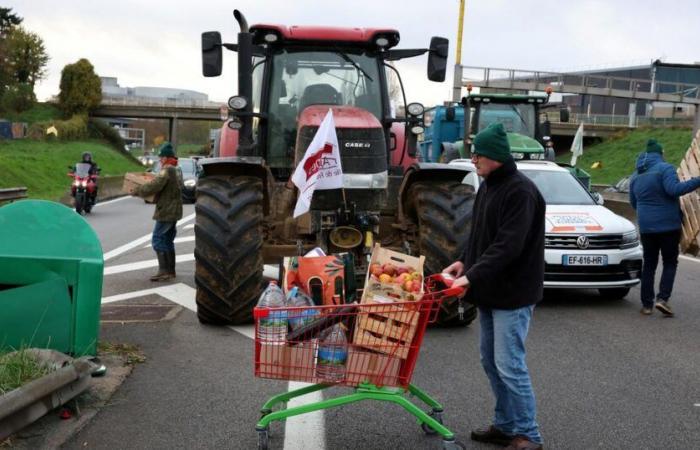
Germany, Italy, Poland… in the major producing countries of Europe, agricultural organizations are also denouncing the proposed free trade agreement between the EU and the Latin American countries of Mercosur. But the response of their governments is more nuanced, with France remaining the most vehement in its opposition.
Germany
Germany, reluctant to agree to the agreement under Angela Merkel due to deforestation in the Amazon, changed sides with Olaf Scholz, wishing to expand its industrial outlets. Today, the collapse of the government coalition leaves farmers waiting. For the German Farmers’ Association (DBV), the main union, “it is urgent to renegotiate” this agreement.
No official demonstration is planned, which should not prevent convergences on the Franco-German border, as on the Franco-Spanish border.
Also read
From Italy to Poland, European farmers opposed to an EU-Mercosur agreement
Spain
In Spain, all the major agricultural unions have expressed their fears, particularly for livestock farming. This agreement is “outdated and incoherent”for the Asaja organization. No mobilization has been announced, but the concern aroused by the project had weighed on the angry movement of farmers at the start of the year. However, the government of socialist Prime Minister Pedro Sánchez has come out in favor.
Italy
The large organization Coldiretti wrote to Prime Minister Giorgia Meloni to express the “deep concern” with regard to an agreement which “would have devastating effects on the agri-food sector”. “We believe that close collaboration with other EU member states, such as France, who share our concerns, can prevent the agreement from being adopted in its current form”calls the letter.
The Netherlands
The main agricultural union LTO calls “to stop the negotiations”. In the Netherlands, the poultry sector and sugar would be threatened, explains Klaas Johan Osinga, political strategy advisor of the LTO to AFP. “The agreement could however be good for the cheese sector, be an opportunity for horticulture, but these are relatively small sums”he adds, noting that the four parties in the government coalition are divided on the subject.
Poland
The Ministry of Agriculture expressed its “serious reservations” with regard to a project which “will perhaps have some benefits for industry, maritime transport and certain services, at the expense of most segments of agro-food production”. One of the main agricultural organizations, NSZZ RI Solidarnosc, called on the head of government Donald Tusk to go further and “to block” the project.
Austria
The parliamentarians of the National Council adopted a resolution against, recalls the Ministry of Agriculture: “Restricting agricultural production in Europe via ever more stringent standards while pushing for old-school trade agreements is not compatible. Austria is an export-oriented country, we want the game to be fair”. Such imports without customs duties “endanger our agriculture”summarizes the first agricultural association (Bauernbund).
Ireland
While in Ireland the legislative elections at the end of November are focusing attention, the representatives of the breeders (ICSA) protested in front of the lower house of Parliament.
”
data-script=”https://static.lefigaro.fr/widget-video/short-ttl/video/index.js”
>





